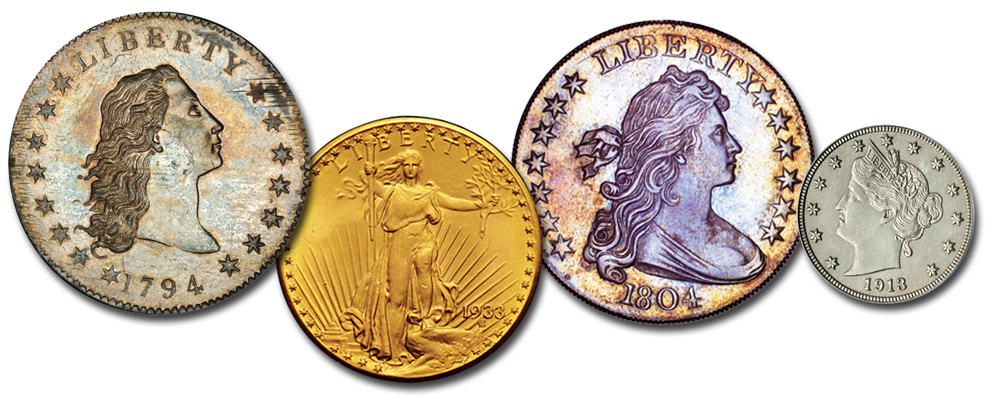
Answer: You probably mean the most valuable coin and, based on auction records, the incredible 1794 silver dollar from the Cardinal Collection that we sold last January for over $10 million holds that record. Other “most valuable” United States coins would include the 1933 double eagle (which held the record until January at over $7.5 million), the 1804 dollar and the 1913 Liberty Head nickel — examples of both of these issues have sold for multiple millions of dollars on various occasions. In fact, quite a few different U.S. coins have sold for more than a million dollars over the past decade.
The rarest is a different consideration, as this has to do with the number known to exist. In American numismatics there are dozens of tokens, medals and coin die varieties of which only one exists. An example is the pattern 1849 $20 in the National Coin Collection in the Smithsonian, probably worth many millions. Or, there is a unique brass Breckinridge token muling that I purchased a while ago that cost me around $700.
The value of a coin does depend on its rarity, but it also depends on its popularity, fame, and the demand for it. Thus the 1804 dollar and 1913 nickel you mention are more famous than some rarer coins and appeal to a wider circle of enthusiasts. An obscure political token may be of interest to only a few.





